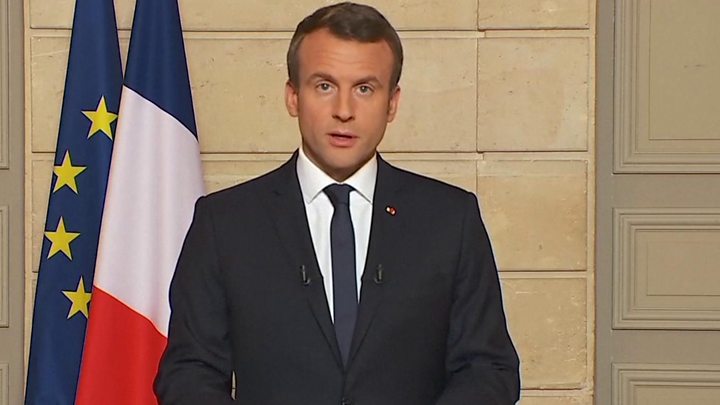
There has been widespread international condemnation of President Trump's announcement that the US is withdrawing from the 2015 Paris climate agreement.
UN chief Antonio Guterres's spokesman called it "a major disappointment" while the European Union said it was "a sad day for the world".
However, senior Republicans and the US coal industry backed the move.
Mr Trump said the accord "punished" the US and would cost millions of American jobs.
In an address at the White House, he said he was prepared to negotiate a new agreement or re-enter the accord on improved terms.
"I was elected to represent the citizens of Pittsburgh, not Paris," he said.
The Paris agreement commits the US and 187 other countries to keeping rising global temperatures "well below" 2C above pre-industrial levels and "endeavour to limit" them even more, to 1.5C.
Only Syria and Nicaragua did not sign up to the deal.
Why did Trump pull out of the accord?
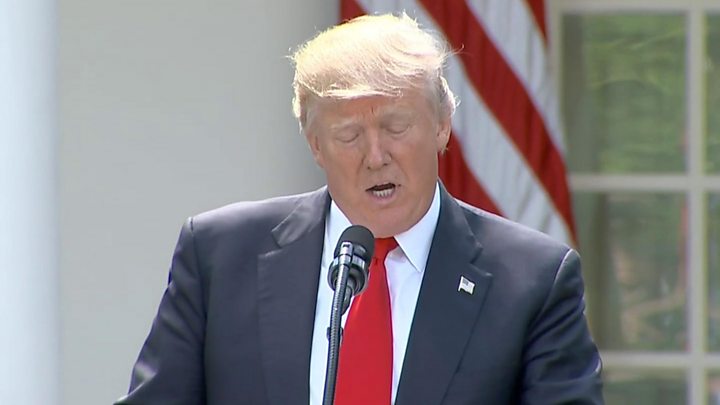
Mr Trump characterised the Paris agreement as a deal that aimed to hobble, disadvantage and impoverish the US.
He claimed the agreement would cost the US $3tn (£2.3tn) in lost GDP and 6.5 million jobs - while rival economies like China and India were treated more favourably.
"In order to fulfil my solemn duty to protect America and its citizens, the United States will withdraw from the Paris climate accord... but begin negotiations to re-enter either the Paris accord or a really entirely new transaction on terms that are fair to the United States," he said.
"We don't want other leaders and other countries laughing at us any more - and they won't be," he said.
Mr Trump did not give a timescale for US withdrawal, but White House sources had earlier suggested it could take up to four years.
What has the reaction been?
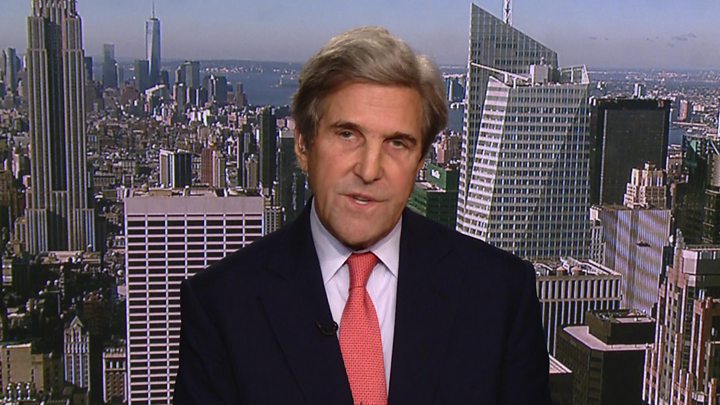
Former US President Barack Obama, who agreed to the Paris deal, immediately criticised the move, accusing the Trump administration of "rejecting the future".
Disney's chief executive Robert Iger and the entrepreneur Elon Musk both resigned from White House advisory councils.
"Climate change is real. Leaving Paris is not good for America or the world," Mr Musk, the head of tech giant Tesla, said.
Republican congressional leaders and the US coal industry backed the move, with Senate Majority Leader Mitch McConnell supporting Mr Trump "for dealing yet another significant blow to the Obama administration's assault on domestic energy production and jobs".
Peabody Energy, America's biggest coal mining firm, said the agreement would have badly affected the US economy.
Senate Democratic leader Chuck Schumer called the decision "one of the worst policy moves made in the 21st Century because of the huge damage to our economy, our environment and our geopolitical standing".
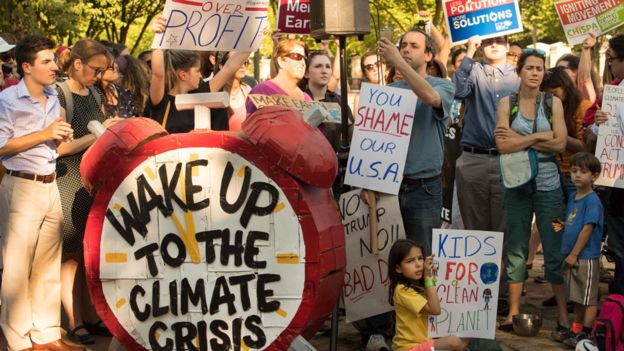 AFP
AFP
The leaders of France, Germany and Italy issued a joint statement rejecting a renegotiation of the agreement.
"We deem the momentum generated in Paris in December 2015 irreversible and we firmly believe that the Paris agreement cannot be renegotiated, since it is a vital instrument for our planet, societies and economies," it said.
Canada was "deeply disappointed" by President Trump's decision, Prime Minister Justin Trudeau said.
This was echoed by UK Prime Minister Theresa May, who expressed her disappointment and told Mr Trump in a phone call that the deal protects the "prosperity and security of future generations".
Leaders of the Nordic nations - Sweden, Finland, Denmark, Norway, and Iceland - also condemned the move.
A United Nations spokeswoman said it was a "major disappointment for global efforts to reduce greenhouse gas emissions and promote global security".
Small island nations whose existence is threatened by rising sea levels were critical of the move. The President of the Marshall Islands, Hilda Heine, said it was "highly concerning for those of us that live on the frontline of climate change".
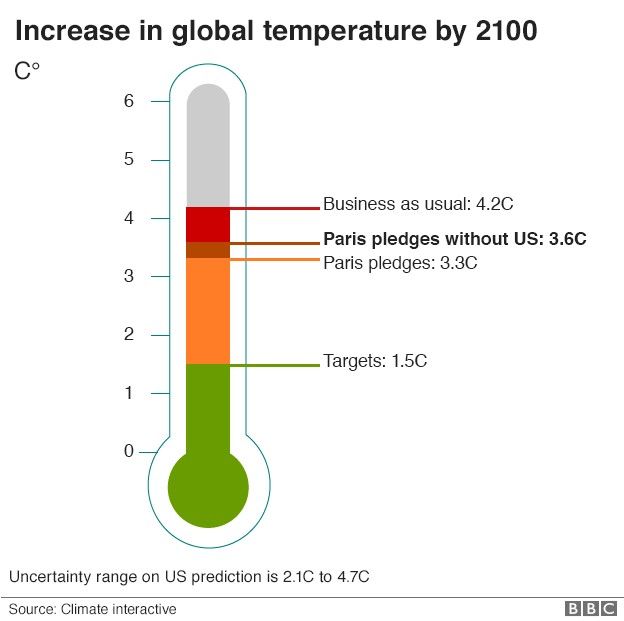
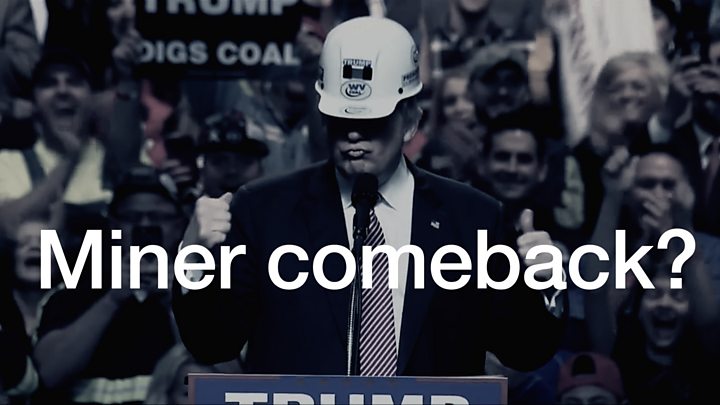
What was agreed in Paris?
Climate change, or global warming, refers to the damaging effect of gases, or emissions, released from industry and agriculture on the atmosphere.
The Paris accord is meant to limit the global rise in temperature attributed to emissions.
Countries agreed to:
- Keep global temperatures "well below" the level of 2C (3.6F) above pre-industrial times and "endeavour to limit" them even more, to 1.5C
- Limit the amount of greenhouse gases emitted by human activity to the same levels that trees, soil and oceans can absorb naturally, beginning at some point between 2050 and 2100
- Review each country's contribution to cutting emissions every five years so they scale up to the challenge
- Enable rich countries to help poorer nations by providing "climate finance" to adapt to climate change and switch to renewable energy

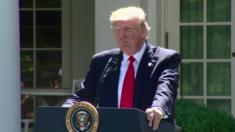
No comments:
Post a Comment